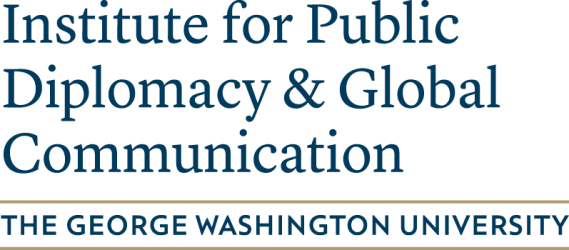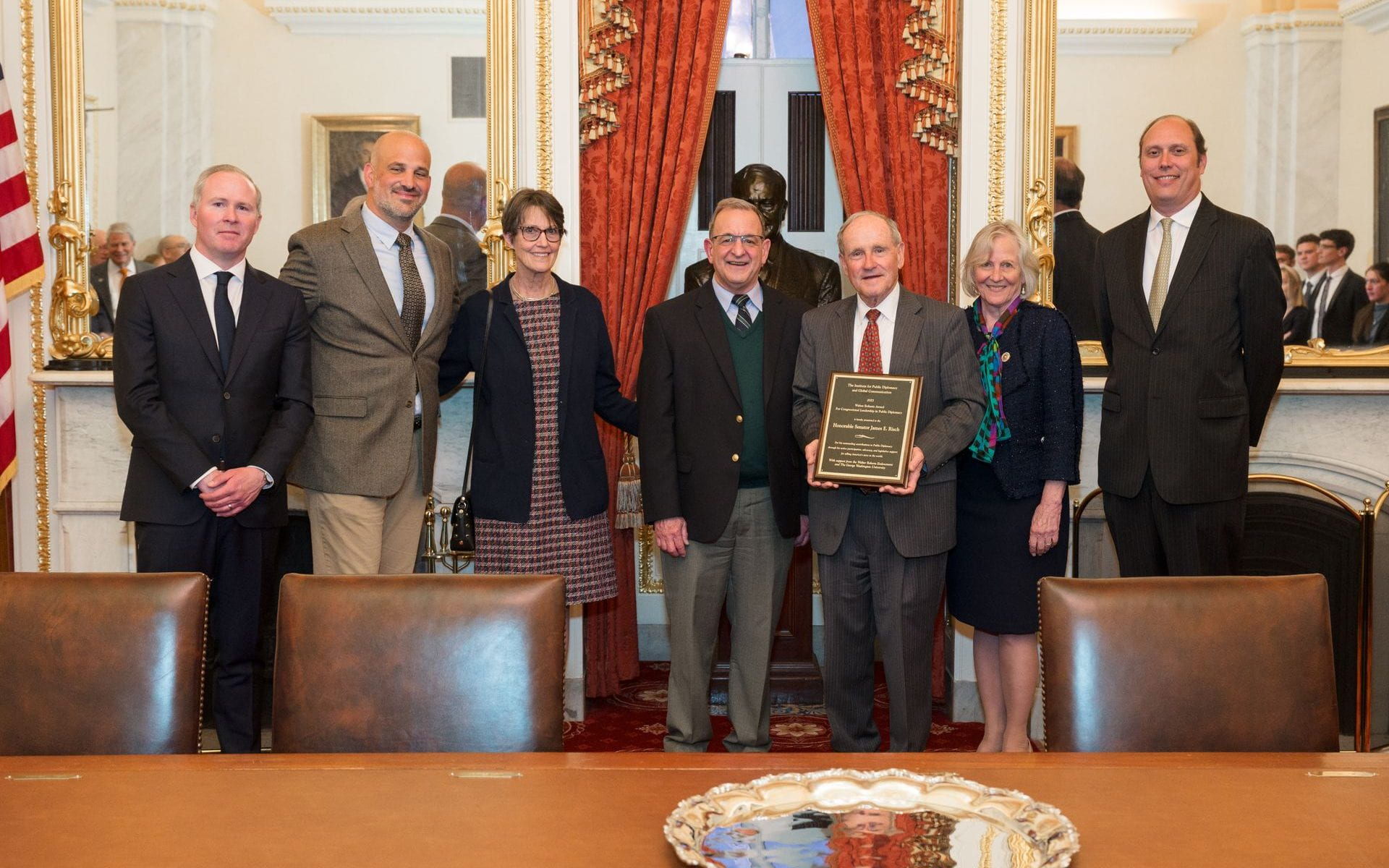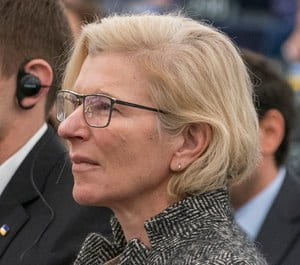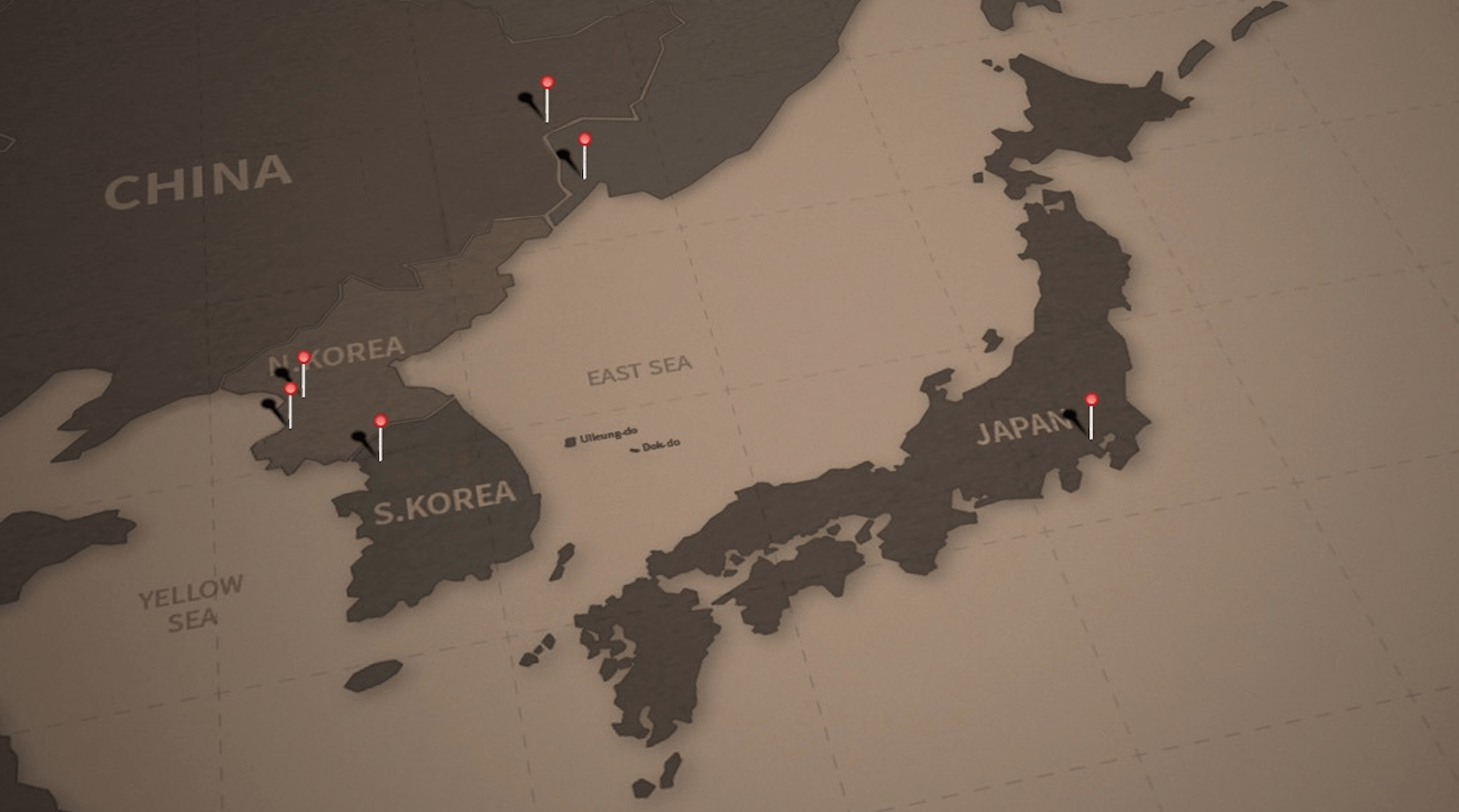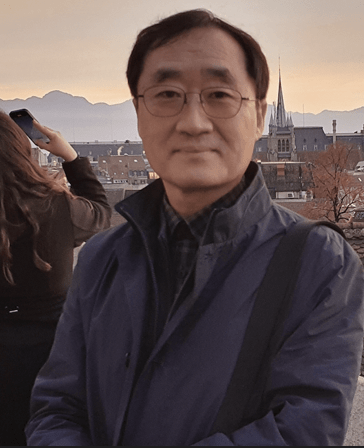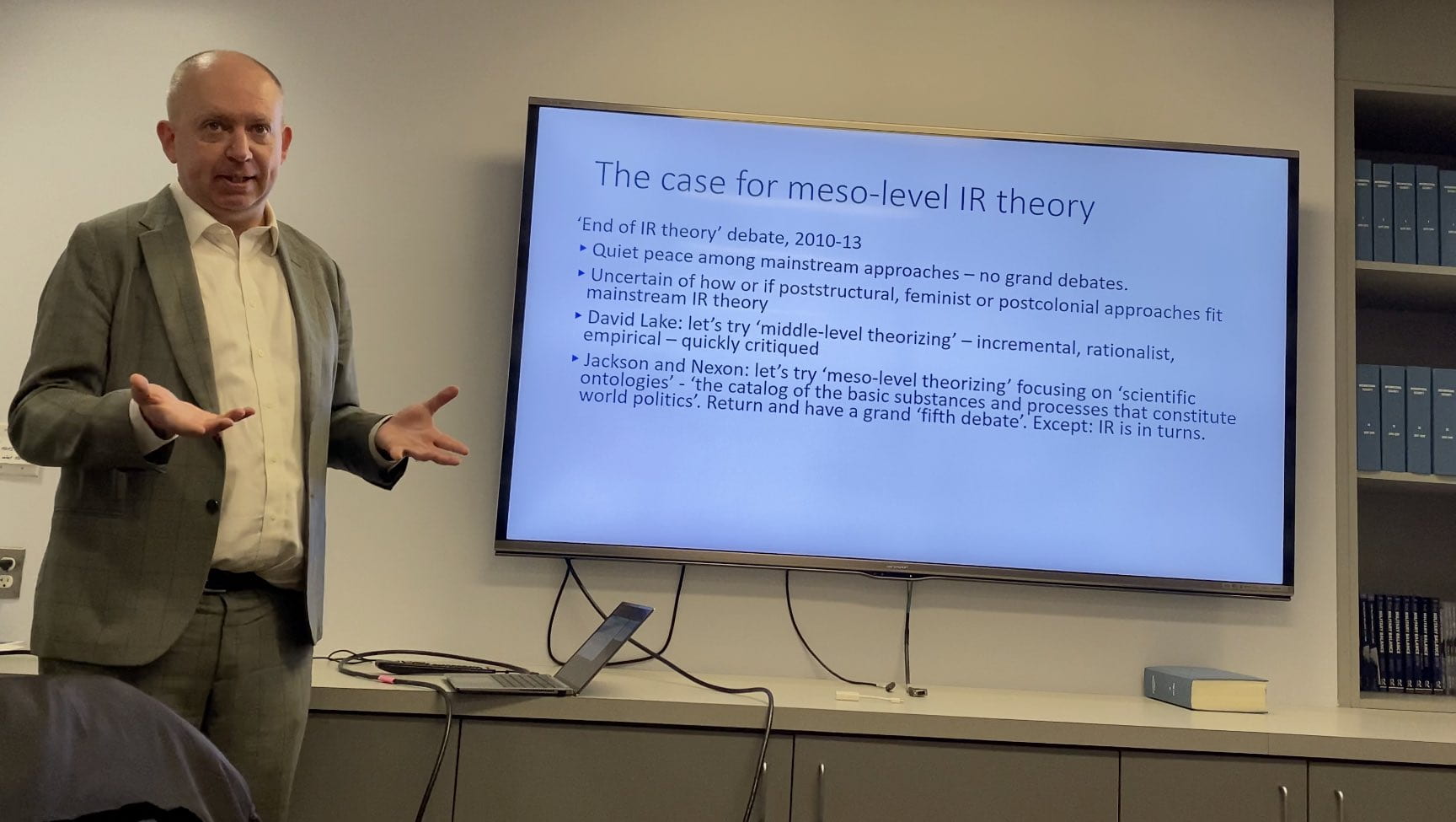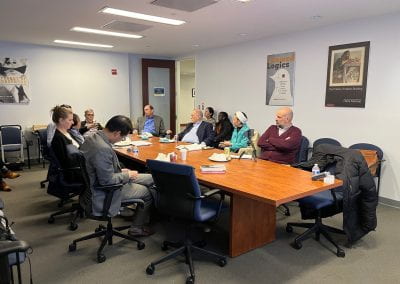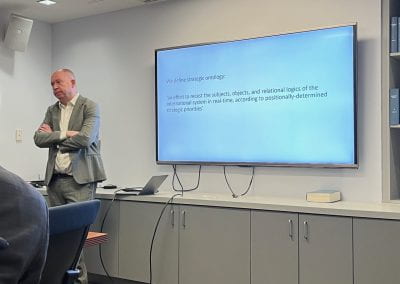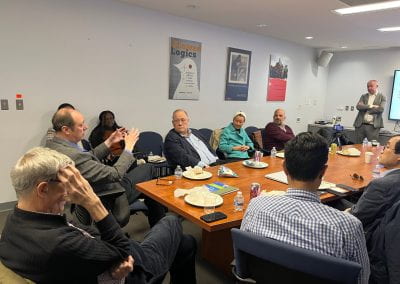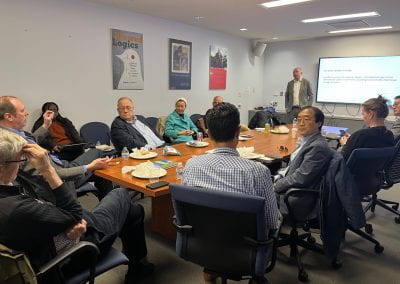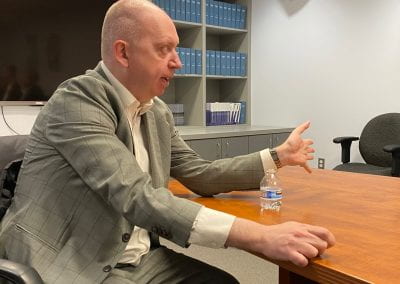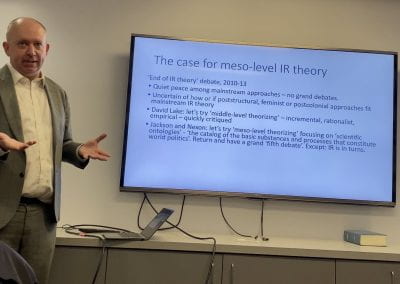IPDGC honors Idaho senator for his support of American global engagement
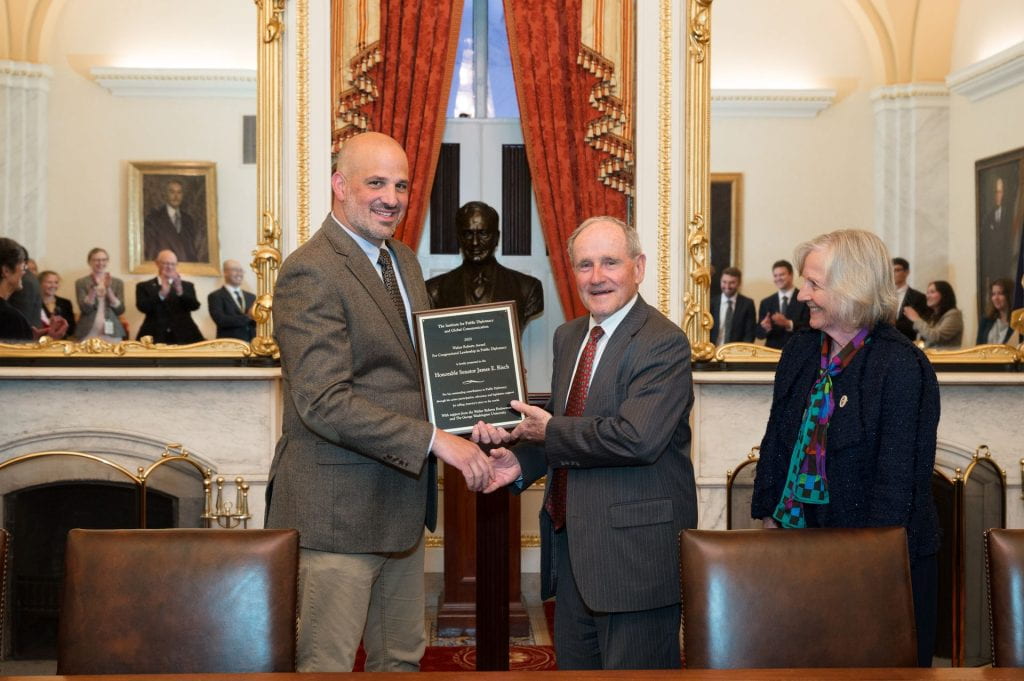
WASHINGTON (April 19, 2023) – The Institute for Public Diplomacy and Global Communication at the George Washington University, together with the Walter Roberts Endowment, has given U.S. Senator James Risch
(R-Idaho) the 2023 Walter Roberts Award for Congressional Leadership in Public Diplomacy. The award was given in recognition for Sen. Risch’s role in protecting the security and interests of the American people and continuing to advance U.S. prosperity and leadership around the world. Sen. Risch is the ranking member and lead Republican of the Senate Foreign Relations Committee.
Sen. Risch in his remarks notes, “As ranking member of the Senate Foreign Relations Committee, I understand the impact that diplomacy can have on the many challenges that exist around the globe. The United States is looked to for leadership on the world stage, and in many cases, our diplomatic tools are the best way to ensure an outcome that benefits the U.S. I am honored to receive this recognition.”
The 2023 Walter Roberts Award recognizes Risch’s efforts to promote U.S. public diplomacy, namely by holding hearings on the role of public diplomacy in countering authoritarianism and helping get language to support public diplomacy in last year’s National Defense Authorization Act (NDAA).
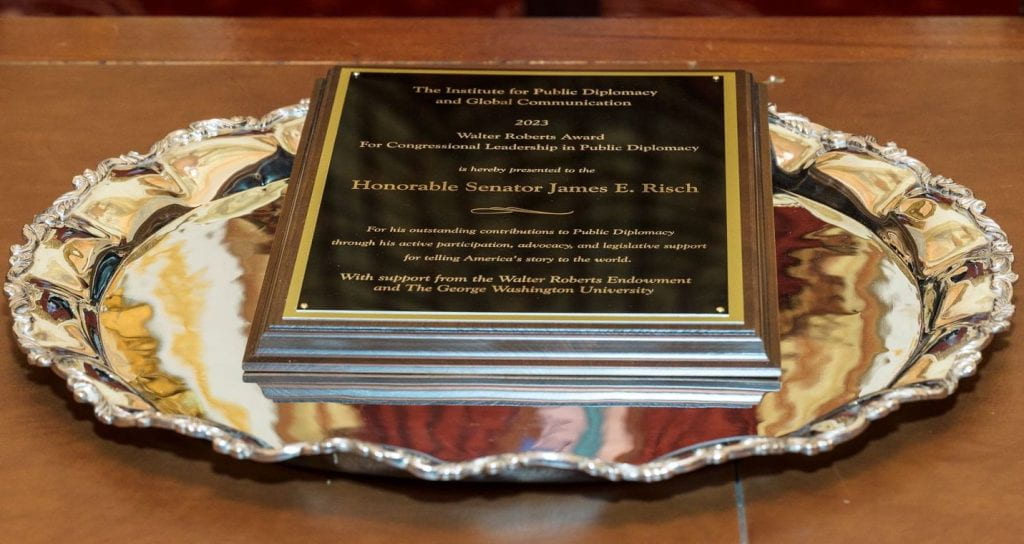
“This award celebrates the Senator’s leadership in advancing ideals shared by Walter Roberts, who dedicated his career to the promotion of public diplomacy and international broadcasting,” says Dr. William Youmans, Director of the Institute for Public Diplomacy and Global Communication.
Speaking on behalf of the Endowment, Dr. William Roberts – eldest son of Walter Roberts – thanked Risch for his service and encouraged him to keep up the work on “current and future public diplomacy initiatives as you seek novel and innovative ways to connect with a diversity of people both locally and around the world”.
Sen. Risch ensured the passage of the State Authorization Act, which makes significant investments key to advancing U.S. national security and foreign affairs, including modernizing the State Department’s diplomatic corps and strengthening diverse recruitment and retention efforts. Recently, U.S. President Joe Biden nominated Sen.
Risch for Congressional Representative of the United States to the 77th Session of the General Assembly of the United Nations, a testament to his commitment to diplomacy.
The Institute also announced a grant of $5,000 from the Walter Roberts Endowment to the non-profit organization Global Ties Idaho for a public diplomacy program that serves its community.
From Boise, Global Ties Idaho Executive Director Carol Schroeder sent along congratulatory remarks, “Global Ties Idaho is appreciative of Sen. Risch’s long and distinguished political career in Idaho. Many of us consider him a close friend… (and) are delighted that he has been recognized. We extend our hearty congratulations to our good Senator.”

The Walter Roberts Award for Congressional Leadership in Public Diplomacy was created for recognizing congressional leaders for their work to support the important work of public diplomacy as well as to shed light on something that is invisible to many Americans, but crucial to U.S. interests.
The Institute of Public Diplomacy and Global Communication is generously supported by the Walter Roberts Endowment. Established in 2005 by Dr. Walter R. Roberts, former associate director of the U.S. Information Agency and distinguished figure in U.S. public diplomacy, the endowment supports activities, programming, and scholarship for the study of public diplomacy at the George Washington University.
